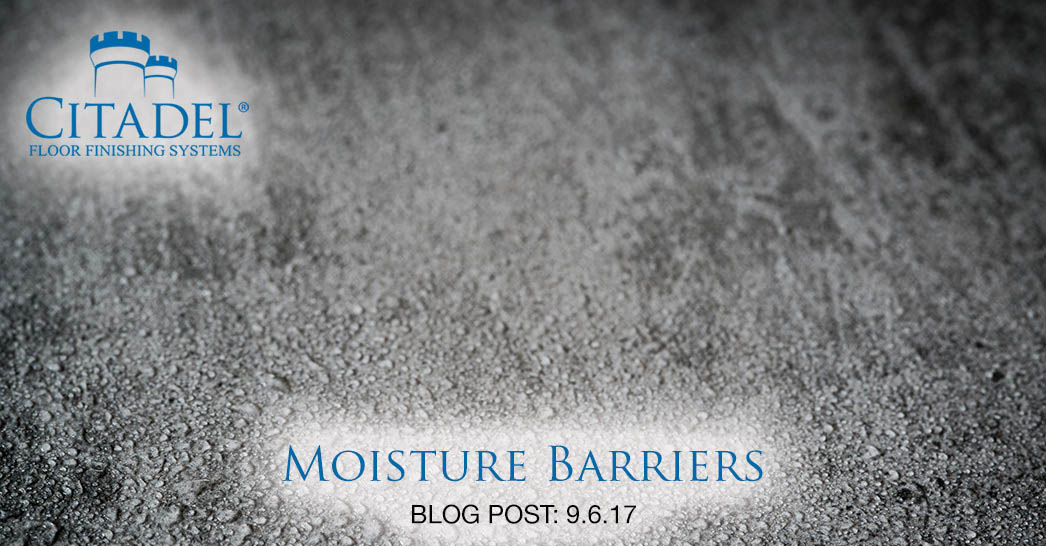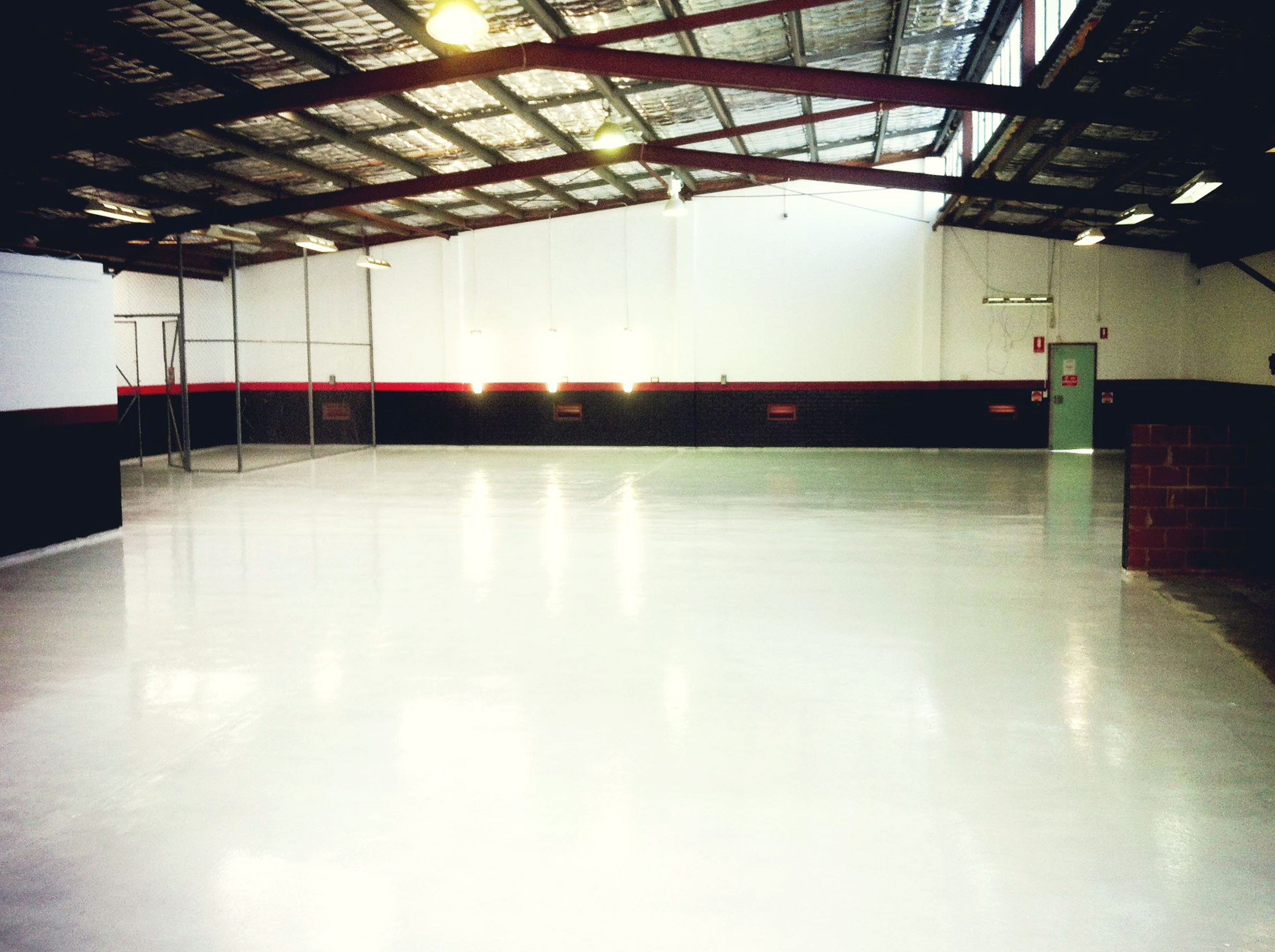Water vs. Solvent-Based Moisture Barriers Over Concrete

2017-09-06
Assuming the concrete floor's surface has been well prepared and profiled, moisture vapor transmission (MVT) is the dominant cause of coating failures. If you've tested the concrete (a must) and come back with a high moisture level, there is only one way to protect your finish coating: prime the concrete with a moisture-blocking barrier.
Taking the time for this prevention step can save thousands of dollars and dozens of labor hours in repaired or replaced coatings months or even years later.
That said, there are many MVT-blocking barriers to choose from. So, how do you know which is the best fit for the job?
Moisture barriers fall into two primary categories: water- or solvent-based. In this article, we'll compare Citadel's Ultra-Hydro Stop Primer™, a two component, 100% solids solvent-based barrier, and Ultra-Hydro Stop H20 Primer™, a three-component, 50% solids water-based barrier, to walk you question by question through the decision-making process.
1) What characteristics do both water- and solvent-based barriers share? If any of the following are a concern, you are covered (ha ha) no matter which barrier you choose.
• Low odor. Both emit virtually no odors and can be applied indoors with minimal environmental impact. (The same can't be said for all solvent-based moisture barriers, so be sure to review your product's specifications). Citadel's water-based primer has zero VOC (volatile organic compounds), while the solvent-based primer has low VOC, compliant in all 50 states and Canada.
• Long working time, which eases the spread of the mixed material. Ultra-Hydro Stop H20 Primer™ has slightly more, at 1 hour (at 77° F), versus 20-25 minutes for solvent-based.
• Chemical and pH resistance. Both are resistant to high alkalinity floors up to 14 pH, and display good chemical resistance.
• Smooth, glossy adhesion. Both primers adhere well to concrete, and provide a glossy smooth finish when cured. Both are self-leveling, hiding minor substrate damage like pitting and spalling.
2) How "wet" is your floor?
Ultra-Hydro Stop H20 Primer™ can hold back up to 12 lbs/1000 ft²/24 hours of MVT with two coats. If your MVT is any higher, you'll want to go with the solvent-based solution. Ultra-Hydro Stop Primer™ can hold back more than twice as much, up to 25 lbs/1000 ft²/24 hours.
3) How new is your floor?
If time is of the essence and you're looking to mitigate moisture for concrete that has set but not appreciably hardened and is not fully cured, water-based Ultra-Hydro Stop H20 Primer™ can be applied to "green concrete" as early as 2 days after placement.
The water-based primer can be re-coated within 5-7 hours, with a hard-dry at 16 hours. It can serve as a substitute for concrete curing compounds for new concrete, and strengthens existing concrete, preventing shrinkage cracks and eliminating concrete dust.
If you have more leeway in terms of time, or if moisture levels preclude using the water-based solution, solvent-based Ultra-Hydro Stop Primer™ can be applied to "green concrete" as early as 7 days after placement, curing within 8-12 hours. Its pure epoxy chemistry makes it resistant to deterioration from internal concrete conditions.
4) Under what conditions will your team work?
The solvent-based primer allows a greater temperature range for application, 50°F - 100°F, where the water-based primer is best applied between 60°F - 80°F. Also, high humidity will slow dry time for the water-based primer.
5) How many (or few) coatings do you prefer to apply?
If all else is equal, solvent-based Ultra-Hydro Stop Primer™ is a 100% solids epoxy, which requires fewer coats to achieve the desired thickness level than other options. Ultra-Hydro Stop H2O Primer™ is 50% solids, which requires twice as many coats to match the same thickness.
The finished performance properties of water-based and solvent-based primers will be the same, and provide a long lasting and high level of protection to newly finished or aged concrete surfaces. So, your choice between the two is largely determined by the factors above: MVT level, concrete age, and time and environmental constraints.
To determine the best moisture-mitigating barrier to match the time, budget and deciding factors specific to your team's project, click here to contact one of our experts for a no obligation, 1-on-1 consultation.
Latest News
How to Maintain Your Concrete Grinder
Gain Customers and Referrals in 4 Easy Steps
Ready for the Summer Rush? 4 Ways to Prepare
6 Cold Weather Safety Tips for Installers
How to Remove Salt Stains from Concrete
Testimonials
Every time I call I get to talk to someone, and I always have an answer within 20 minutes. That's awesome.
Client: Terry C.

